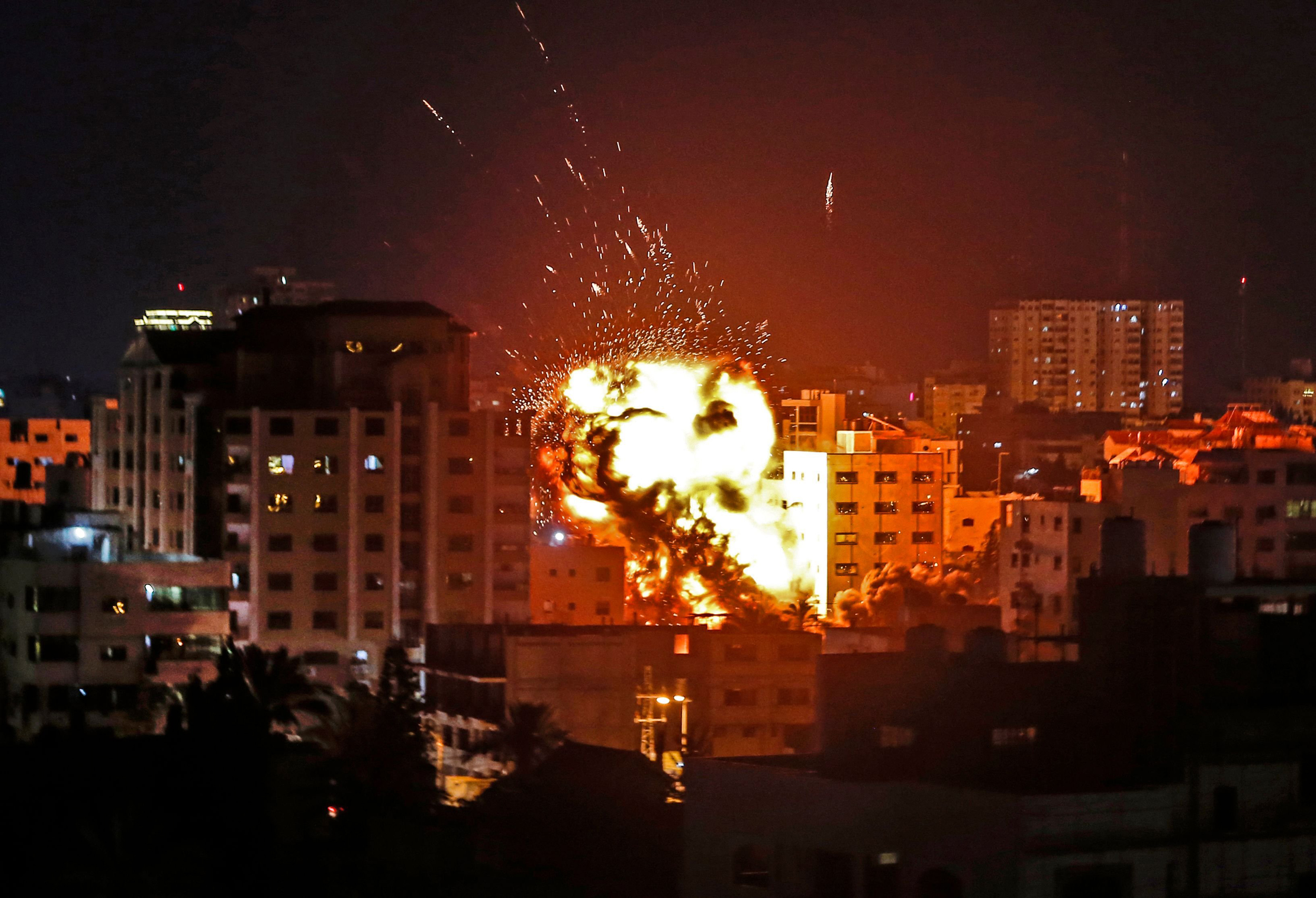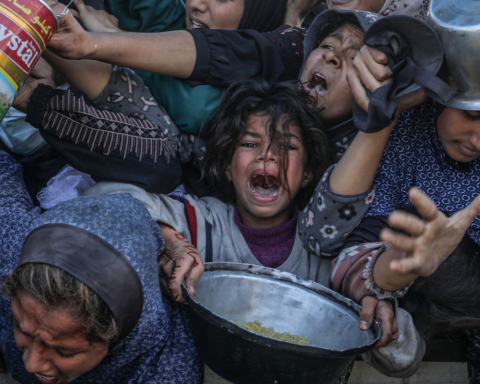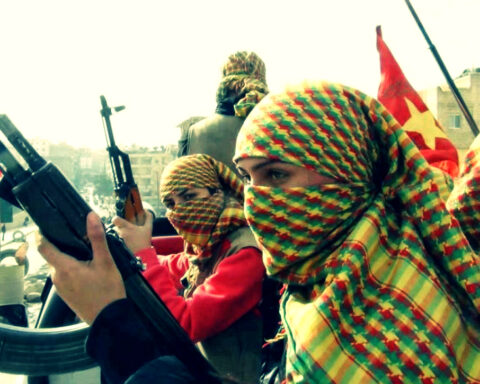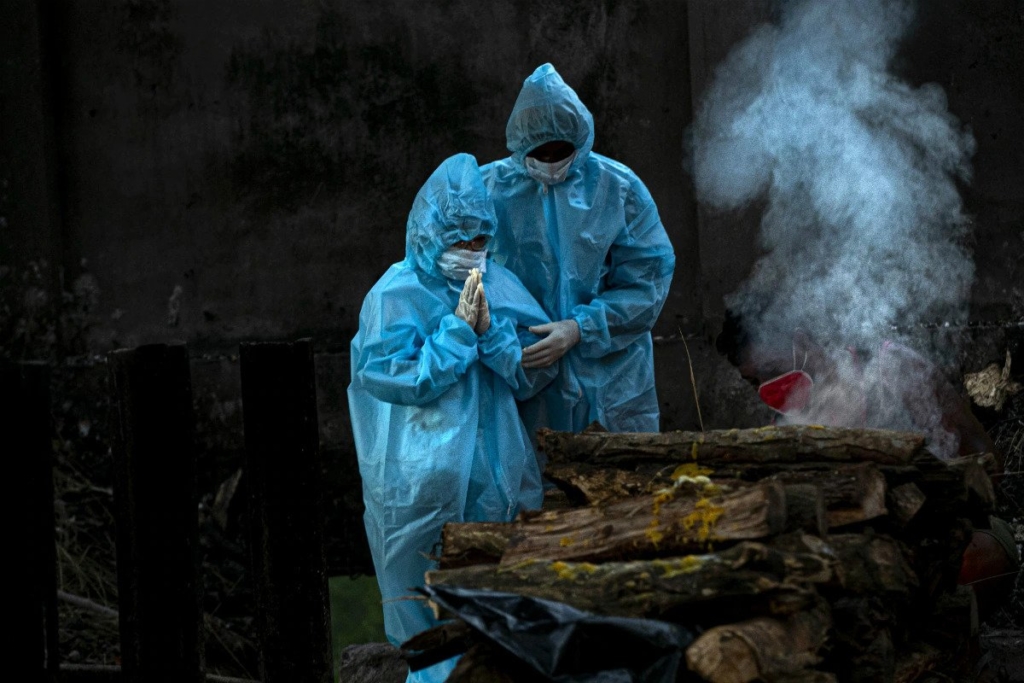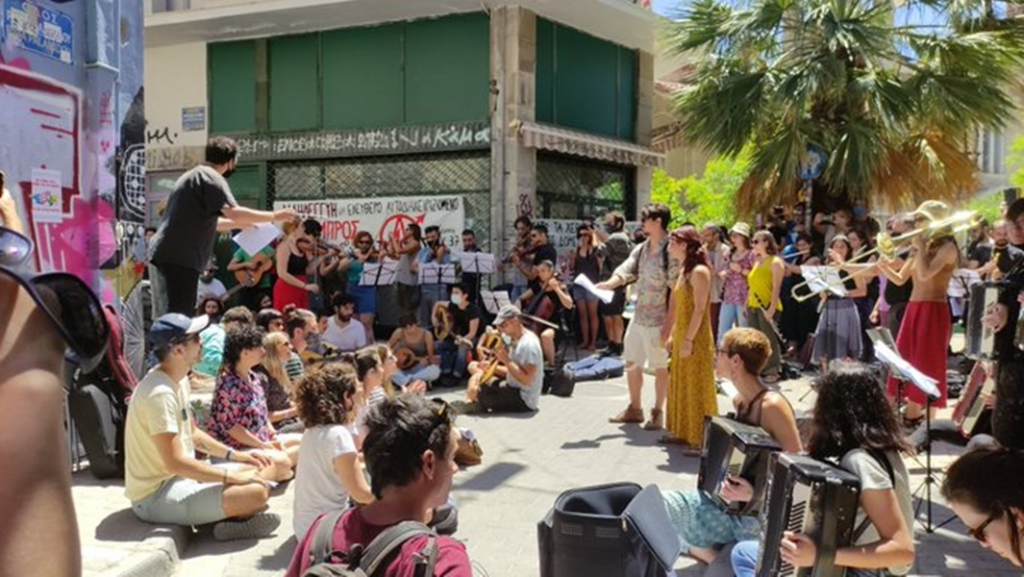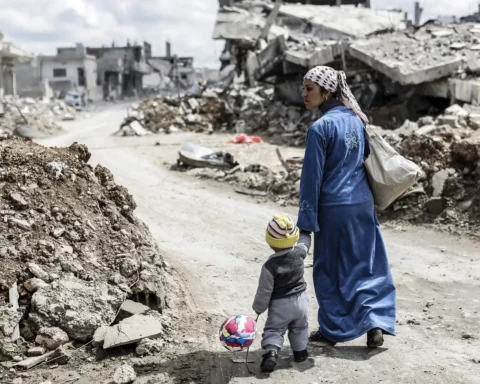The escalation in violence across Israel-Palestine over the past days is primarily the result of a number of choices made by the Israeli government. While such violence is far from unprecedented in our region, and has been inherent to Israel’s oppressive policies for decades, these are choices that ultimately serve the interests of Prime Minister Benjamin Netanyahu, who is desperately fighting to save his political career and avoid potential time behind bars.
The dangerous choices started in earnest with the beginning of the Muslim holy month of Ramadan, when the Israeli authorities made the unfathomable decision to place new makeshift checkpoints at the entrance to Damascus Gate in the Old City of Jerusalem. They then attacked Palestinians who gathered there to enjoy breaking the daily fast with friends and family. It took two weeks of police violence and a steadfast response by Palestinian protesters for the police to back down.
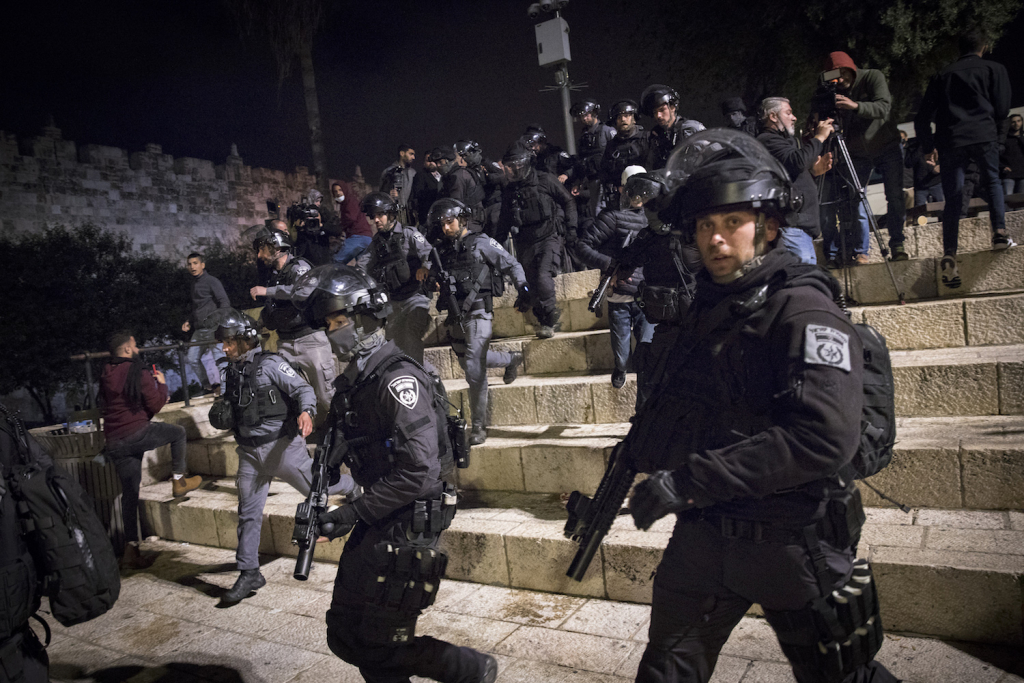
Meanwhile, the resumption of weekly demonstrations and daily vigils in the East Jerusalem neighborhood of Sheikh Jarrah, protesting against the forcible expulsion of Palestinian families there, saw police using brutal force against residents and protesters alike. As +972’s Oren Ziv reported, the police have been ramping up their violence in a neighborhood that has become a major symbol of Palestinian dispossession.
In Sheikh Jarrah, Israel is trying to return land that was claimed to have been previously owned by Jews before 1948 to Jewish hands. To do so, it is expelling Palestinian families who owned land in what became Israel before 1948, without allowing them to reclaim the land they lost during the Nakba. One is hard pressed to find a more blatant form of racist discrimination.
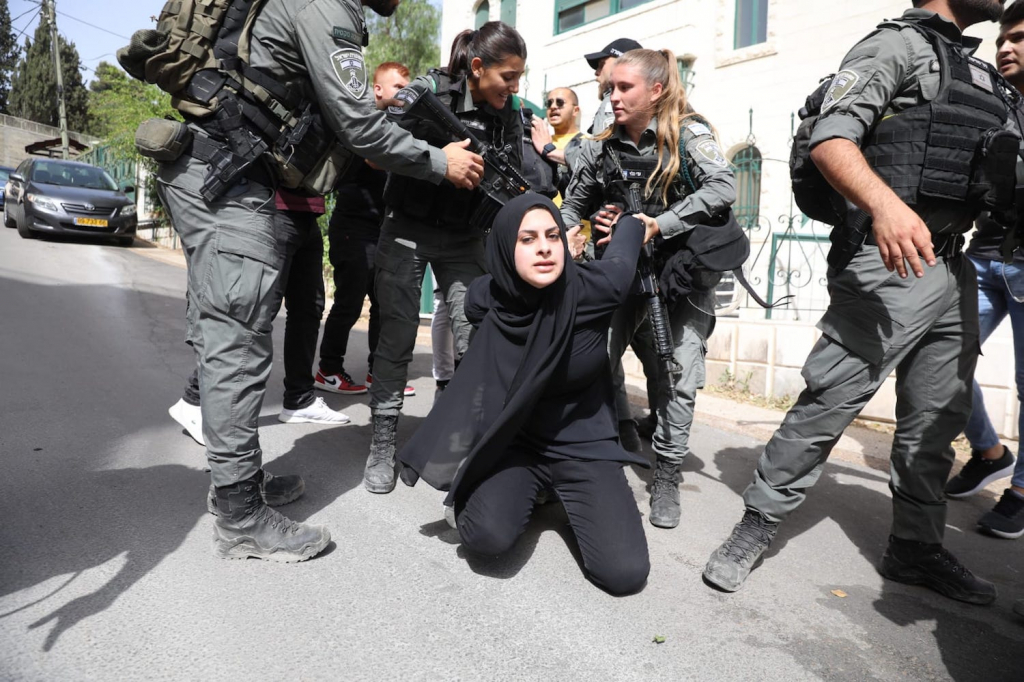
Rock-throwing and confrontations around Al-Aqsa Mosque have become common around Ramadan in recent years. Often they end as soon as they start, with the police deciding to let the protests peter out. This time, the police opted for excessive violence, wounding over 300 Palestinians on Haram al-Sharif/Temple Mount over the last few days. This includes a number of journalists, including Faiz Abu Rmeleh — a member of the Activestills collective and a +972 colleague — who was both shot at by sponge-tipped bullets and beaten by police.
But police violence didn’t end there; forces entered Al-Aqsa Mosque and threw stun grenades at Palestinians inside. The symbolism of armed policemen running over prayer rugs and attacking worshippers in one of Islam’s holiest sites, and during its holiest month, was clear for all to see, and could not have happened without someone making the deliberate decision to engage in such extreme acts.
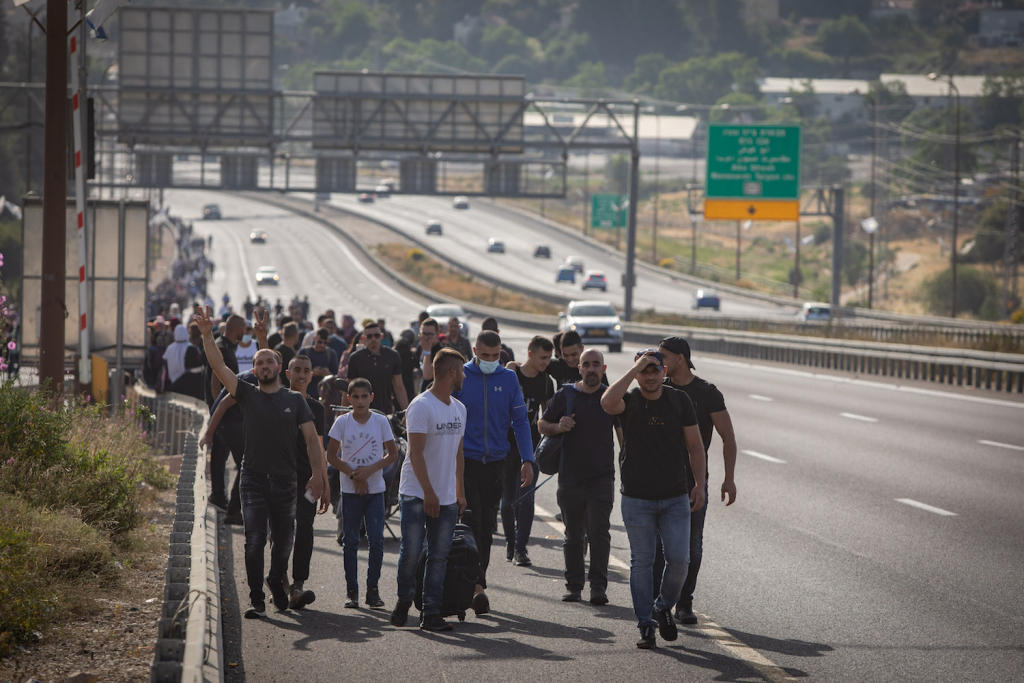
When Palestinian citizens of Israel organized buses to come pray in and protect Al-Aqsa, the authorities responded by shutting down Roads 1 and 443. In doing so, they stopped thousands of fasting Muslims from traveling to Jerusalem to exercise their freedom of worship, while throwing stun grenades at those who kept marching despite police directives. The police explained their decision by claiming they wanted to prevent 20 potential “instigators” from reaching the capital. Even mainstream Israeli journalists, who are often happy to regurgitate the official government narrative, cast doubt on the validity of the claim.
If that wasn’t enough, this past month, far-right extremists from the racist Lehava organization have appeared in Sheikh Jarrah, Damascus Gate, and central Jerusalem. They have been backed by the Kahanist MK Itamar Ben-Gvir and Jerusalem’s deputy mayor Aryeh King, who publicly wished death upon a prominent Palestinian activist in Sheikh Jarrah last week.
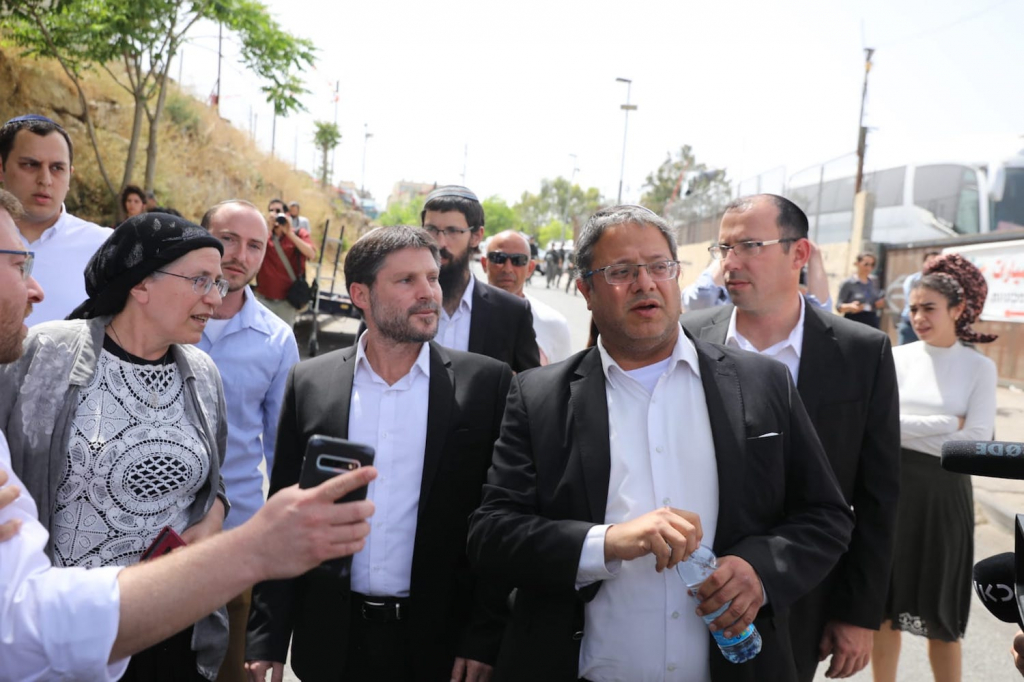
Two weeks into the events in Sheikh Jarrah and Damascus Gate, President Mahmoud Abbas announced he was cancelling the Palestinian elections. The official reason was Israel’s decision to prevent Jerusalemite Palestinians from participating, in violation of the Oslo Accords. Yet the decision was clearly designed to serve Abbas’ interests, and as many Palestinian political activists have argued, it was still possible and perhaps even necessary to hold the election regardless of Jerusalem’s exclusion.
While this is an intra-Palestinian issue, Israel could have announced that it was acting in accordance with its obligations under the Oslo framework, respected democratic principles, and allowed Jerusalemite Palestinians to vote. It chose not to do so, and in the run-up to Abbas’ announcement, the police arrested Palestinians in the city who were vocally supportive of and trying to organize around elections. This, too, was an escalation of Israel’s making.
On Monday, during Israel’s notorious Jerusalem Day “Flag March,” Hamas militants fired rockets at Jerusalem. Israel chose to respond to the rocket fire by attacking Gaza, reportedly killing at least 20 people, including nine children. The government announced that the military operation would last “days, not hours.” Netanyahu added that he would “exact a heavy price” from Gaza. This, too, was a choice.
Too little, too late
Of course, what we’re seeing is not solely a result of Israeli unilateral conduct. Hamas firing rockets at civilians — as happened today in Jerusalem, the western Naqab/Negev, and in the towns around Gaza — is a war crime. Moreover, last month, videos published on TikTok showed Palestinians harassing and attacking ultra-Orthodox Jews. Palestinian militants have also carried out a number of shooting attacks on Israeli civilians and soldiers in the West Bank, killing 19-year-old Yehuda Guetta last week. In recent days, incendiary balloons have been launched into Israel from Gaza, burning fields in the south.
And yet, it is also clear that none of this is a match for the sheer power and brutality of the most powerful military in the region, as the death toll shows time and time again. Almost at the same time, soldiers killed Fahima al-Hroub near the Gush Etzion junction in the West Bank, as a result of a criminal culture that allows Israeli soldiers and police to kill mentally ill Palestinians without paying a price.
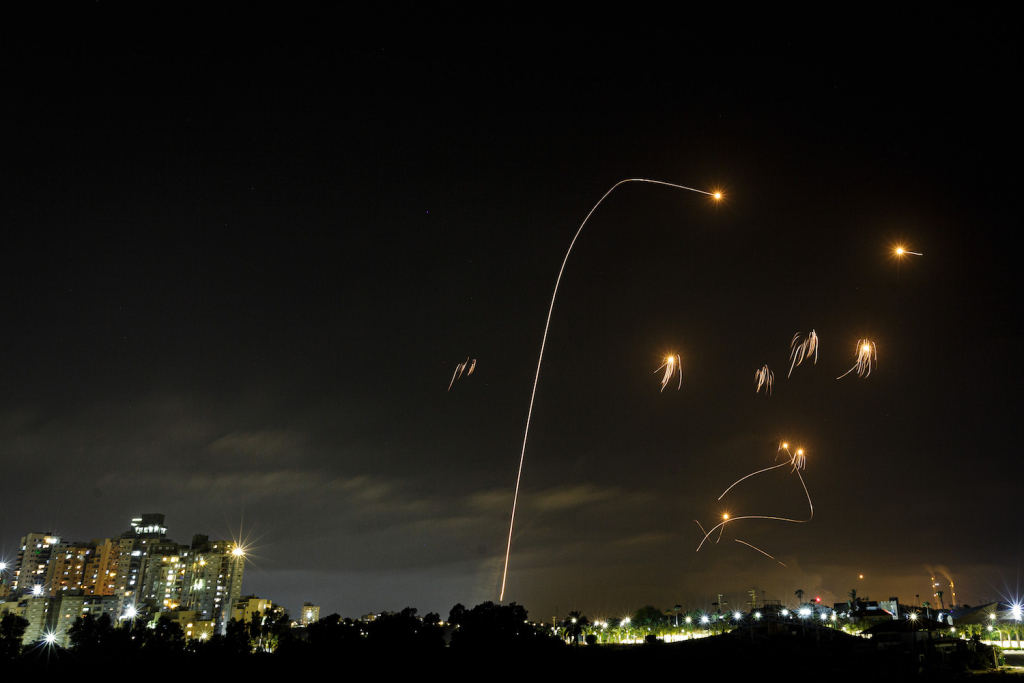
In addition, in the days leading up to the attack on Gaza, Israel (and particularly the Shin Bet) grew frightened of what was unfolding and began trying to limit the damage. Netanyahu asked Ben Gvir to remove a makeshift “bureau” he had erected in Sheikh Jarrah and leave the neighborhood. The Supreme Court’s hearing over the families’ expulsions was postponed at the request of the attorney general. The Temple Mount was closed off to Jews on Jerusalem Day, and at the last minute, the government nixed its plan to allow the infamous Flag March to pass through Damascus Gate and inside Muslim Quarter. All these steps were presented as ways to de-escalate the situation.
But it was all too little, too late. The government’s decision on Monday evening to bombard Gaza completely undermined whatever attempts it was claiming to make to bring the violence in Jerusalem to a swift end.
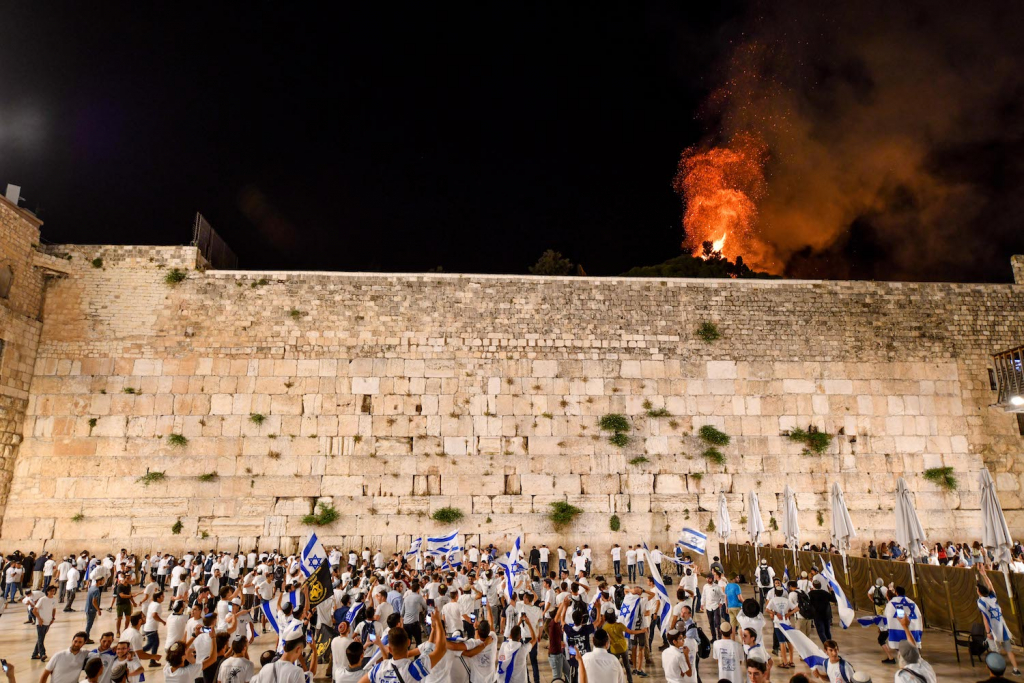
These, of course, are only the developments we have seen in recent weeks. The reality of a 14-year siege on Gaza, a military regime built on separate legal systems for Jews and Palestinians, dispossession and demographic engineering in Jerusalem, systematic discrimination against Palestinian citizens of Israel, and the forced exile of Palestinian refugees, undergirds everything we are seeing happening now. Netanyahu’s years-long attempt to “manage the conflict” may have erased these injustices from Israeli public consciousness, yet they remain the daily reality for millions of Palestinians — and they actively feed everything that is currently taking place.
A struggle for life itself
The Israeli reactions to Hamas rocket fire were immediate. Major media outlets and Israeli politicians — including those who hope to replace Netanyahu — parroted the well-known party line. “Israel must act resolutely and strongly and restore deterrence,” declared Yair Lapid, who was recently tapped to try and assemble a government, and who was supported by Labor, Meretz, and most of the Joint List. Former Likudnik Gideon Sa’ar and Yamina’s Naftali Bennett — the latter who may very well be the next prime minister — both joined Lapid in calling for harsher attacks on Gaza, without any reflection on Israeli actions that have led us to this moment.
On the other hand, the Islamist Ra’am party, which said it would back Lapid and Bennett in forming a government, suspended coalition talks following Israel’s escalation. Neither Ra’am nor the Joint List would be able to support the formation of a government with politicians actively calling for an escalated attack on Gaza.
Back in November 2019, when the idea of forming a center-right alliance with the Joint List first arose, Netanyahu used Gaza as the ultimate reason for the impossibility of forming such a government. Now, just days before Lapid and Bennett were set to announce the formation of a new government to oust Netanyahu, the events in Gaza are playing directly into the hands of the sitting prime minister.
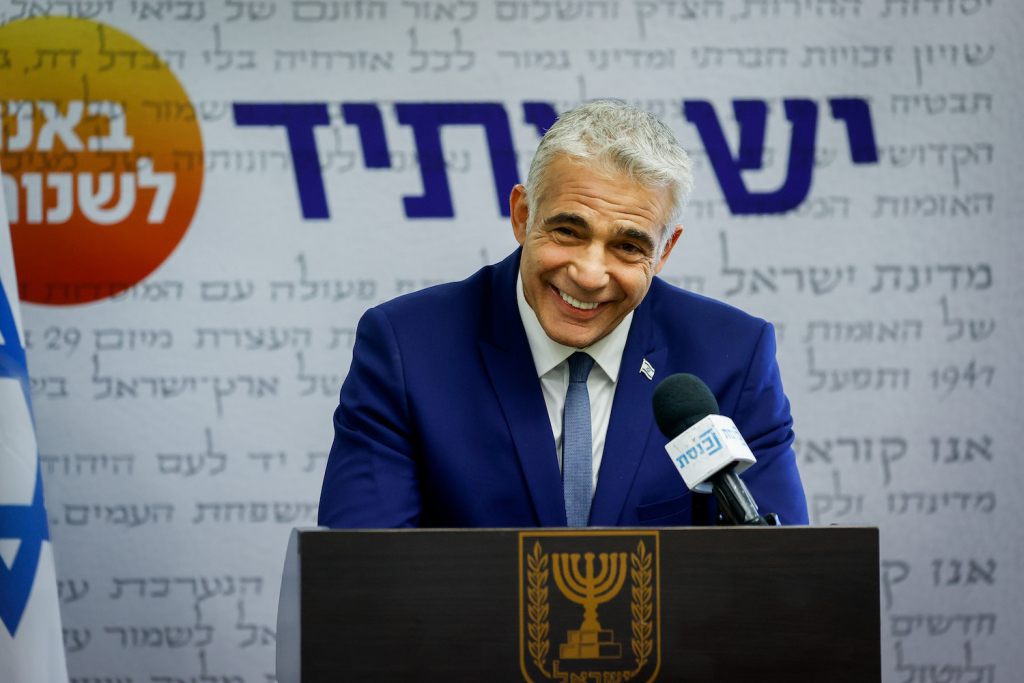
Did Netanyahu plan and orchestrate this escalation? There is, of course, no way to prove such a thing. Are his fingerprints all over the developments? As the prime minister who is responsible for the various actions of the authorities under his command, the answer is undoubtedly yes. Has everything that has happened in the last month, with levels of violence unseen here in years, aided him in his attempts to avoid being ousted? Definitely.
The escalating violence is a reminder that we cannot give up the fight against occupation and apartheid, and that replacing Netanyahu with another right winger will not solve the core issues that affect every aspect of our lives in this land. This is a terrible trap to be in, but it is the trap of Israel’s colonial reality. There is no other way forward apart from a struggle for equality and freedom for all the inhabitants of this land. It is nothing less than a struggle for life itself.
____
source: +972mag
written by
Haggai Matar an award-winning Israeli journalist and political activist, in addition to serving as the executive director of “972 – Advancement of Citizen Journalism,” the nonprofit that publishes +972 Magazine.
